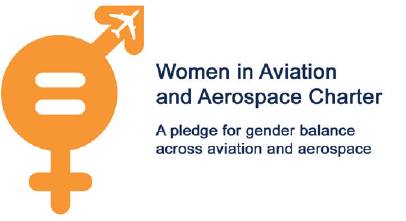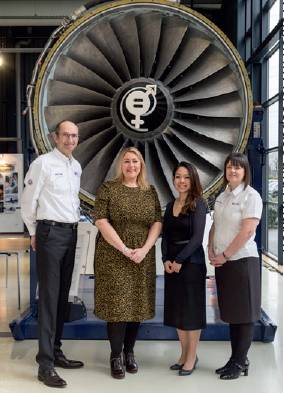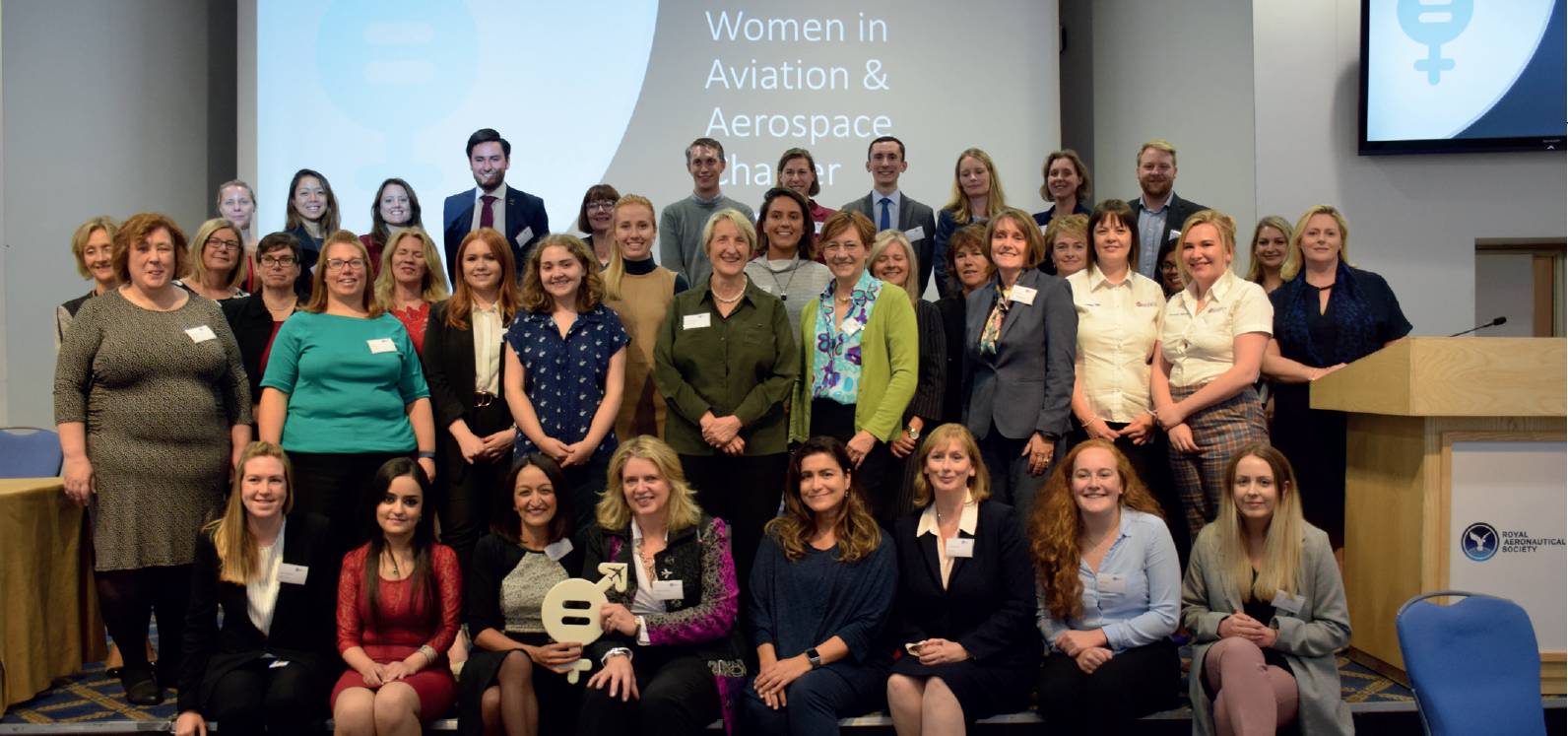The Charter has several work packages to focus on different areas, so we can maximise what we are doing. These are split into: research and reporting, networking and communications, best practice sharing, signatory development, and financing and funding strategy.
Networking and communications

Through the networking and communications group, in April we were able to launch both a Women in Aviation and Aerospace website and a Twitter account, both with the aim of sharing updates and information on the Charter, as well as stories of the incredible women in our industries.
Meanwhile, the best practice sharing group have been collating the work being done to improve gender equality across signatories.
There are already many examples of the work already being done in the efforts towards achieving greater gender parity in the aviation and aerospace industries, so I’ll explain just a few.
Virgin Atlantic has implemented a Be Yourself Manifesto, as part of its Diversity & Inclusion Strategy. This focuses on three main areas: education and awareness around embracing difference; building a diverse workforce, with targets for 12% BAME overall and 50% female in senior leadership roles by 2022; and having an inclusive environment which uses employee networks to share experiences across the workforce.
Flybe have launched its FlyShe programme which sees a number of initiatives designed to change aspiration and create opportunities for women. There is significant gender bias in the aviation industry and it isn’t helped by the lack of exposure to women working in traditionally male-dominated roles, such as pilots or engineers, FlyShe aims to change this with the view that “young girls cannot be what they cannot see.”
Cranfield University has been encouraging positive action initiatives both internally and externally. Internally, its Women as Leaders programme and Step-Up women’s network aims to support female staff in their career progression. It has also rolled out mandatory online diversity and inclusion training for all staff and are holding unconscious bias workshops. Externally, it has partnered with the likes of Boeing to deliver events aimed at encouraging young women to look at STEM careers.
VIRGIN ATLANTIC HAS IMPLEMENTED A BE YOURSELF MANIFESTO, AS PART OF ITS DIVERSITY & INCLUSION STRATEGY. THIS FOCUSES ON THREE MAIN AREAS: EDUCATION AND AWARENESS AROUND EMBRACING DIFFERENCE; BUILDING A DIVERSE WORKFORCE
The Royal Aeronautical Society has launched the Alta Women’s Mentoring Platform, the first of its kind within the industry that provides women with mentors and role models, giving them guidance and helping them progress. Women can sign up to be either mentors or mentees and are encouraged to support each other through the process.
At Airbus, on International Women’s Day, we encouraged colleagues to sign individual versions of the Charter, so everyone could show their personal support towards the work for gender balance. It was great to see so many people across the business sharing this vision of gender equality for the future.
We have also been looking at other ways of spreading the word externally by incorporating discussion on the Charter through means and methods we’re already using, such as mentioning it if you’re speaking at an event. ADS dedicated an episode of its podcast Winging It to Women in Aviation and Aerospace to help get our key messages out there and it resulted in us gaining more signatories.
Since the Charter launched last year, we’ve also held several workshops and seminars to foster discussion around what can be done to help work towards gender equality and facilitate the sharing of best practice across the industry.
Our first seminar was held at the Royal Aeronautical Society back in September 2018 where signatories of the Charter got together to discuss possible steps that could be taken to help improve female representation in the industry. From this event we summarised ten ways we can not only get more women into aviation and aerospace but also into senior positions. This stimulation of conversation and discussion around how to greater achieve gender equality can then be used to inspire best practice and company policies going forward.
 Sharing in Growth seminar
at the Rolls-Royce
Learning and Development
Centre in Derby.
Sharing in Growth seminar
at the Rolls-Royce
Learning and Development
Centre in Derby.
In January Flybe hosted us at its training academy in Exeter for another seminar. The seminar featured presentations on the Government’s Aviation Strategy by Stephen Cummins, Director of Aviation Strategy at the Department for Transport; as well as those covering aviation skills and apprenticeships, the Aerospace Sector Deal, and an update on the progress of the Charter from myself.
In March, Sharing in Growth held a seminar at the Rolls-Royce Learning and Development Centre in Derby, with the aim of encouraging attendees in the aerospace sector to sign up to the Charter.
Our most recent event was in April where we welcomed the 100th signatory of the Charter. The event featured a discussion from a panel of politicians, journalists and industry representatives on “promoting the pipeline – women in leadership”, discussing the work of the Charter and how best to support young women in the pipeline. This was followed by a networking reception where the new Aviation Minister Baroness Vere delivered a keynote address and signatories of the Charter were joined by MPs to discuss the importance of improving gender balance in the industries.
There’s never been a more fertile landscape to achieve the change we want to see towards gender equality, with the backing of Government, industry and academia. Now the Women in Aviation and Aerospace Charter looks to move forward with momentum, aiming to get as much backing from the industry as possible so that we can achieve this common goal.
 The Women in Aviation
and Aerospace Seminar
held at the RAeS HQ in
London. Women in Aerospace and Aviation
The Women in Aviation
and Aerospace Seminar
held at the RAeS HQ in
London. Women in Aerospace and Aviation
